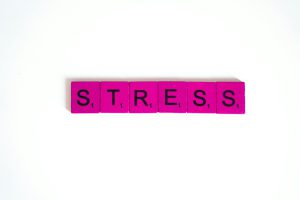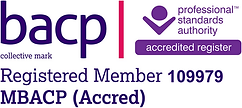Counselling or Life Coaching – When you’re feeling stuck, lost, or just ready to level up your life, there are plenty of helping hands out there. But it can be tricky to work out whether you need a counsellor or a life coach and this can feel like its own mini-identity crisis. Both sound like they’ll guide you to a better version of yourself, yet these roles are fundamentally different. Think of them as two separate roads that occasionally run parallel but ultimately lead to different destinations.
So, what’s the difference? And why does it matter? Let’s explore this in a way that makes sense – and might even make you rethink what kind of support you’re really looking for.
Counselling: Healing the Past
Imagine you’re carrying a heavy backpack filled with rocks. Each rock represents unresolved trauma, deep-seated fears, or maybe even just the weight of everyday stress. Counselling is about helping you unpack that backpack. A counsellor or therapist, creates a safe space for you to explore your emotional landscape and untangle the knots of your past.
Counselling often focuses on mental health and emotional healing. If you’re dealing with depression, anxiety, PTSD, or other psychological challenges, a trained counsellor’s job is to help you work through these issues, often using evidence-based techniques like transactional analysis, Eye Movement Desensitisation and Reprocessing (EMDR) of cognitive behavioural therapy (CBT). The goal being to help you heal and function better in the here and now.
Research backs this up. Studies show that therapy can actually rewire your brain. According to a 2013 review published in Psychological Science, counselling can change neural pathways, helping people develop healthier thought patterns over time. Think of it diving into your emotional hard drive, clearing out old viruses so your system runs more smoothly.
Life Coaching: Building the Future
Now let’s switch focus. Picture yourself as a car at a crossroads, engine running. You know where you want to go – or maybe you’re still figuring it out – but you’re not sure how to get there. Enter the life coach. Their role is to help you rev up your engine, pick a direction, and hit the road.
Life coaching is action-oriented and forward-focused. Coaches help clients set goals, overcome self-limiting beliefs, and develop strategies to achieve their dreams. Whether you’re looking to improve your career, relationships, or personal growth, a life coach acts as a motivator and accountability partner. They’re not here to dig deep into your past – instead, they’re laser-focused on your future.
Because neither counselling or life-coaching are regulated in the UK, it’s crucial to vet your counsellor or coach’s credentials and experience. Many counsellors register with The Counselling Directory, all of whom a fully qualified and verified. Equally you can find a qualified Life Coach on the Life Coach Directory.
And while life coaching isn’t a replacement for therapy, research suggests it’s highly effective for certain goals. A 2020 study in the Journal of Positive Psychology found that coaching can significantly boost well-being, goal attainment, and resilience.
So, Which One Do You Need?
Here’s where it gets personal. Ask yourself:
- Am I feeling weighed down by emotional baggage? If your answer is yes, counselling might be the right choice. It’s designed to help you process and heal.
- Am I ready to focus on achieving specific goals? If you’re all about action and looking forward, a life coach might be your ideal co-pilot.
- Do I need both? Sometimes the best answer is both. Many people find value in working with a counsellor to address their past while also collaborating with a coach to shape their future.
Bridging the Gap
One of the most interesting trends is how these fields are beginning to overlap. Some counsellors are incorporating coaching techniques to help clients set and achieve goals, while some life coaches are diving deeper into emotional patterns to better support their clients. It’s a sign that the line between these two paths isn’t as rigid as it once was.
Final Thoughts
Whether you’re seeking clarity on your past or building momentum for your future, the key is to choose the kind of support that resonates with where you are right now. Counselling and life coaching aren’t competitors – they’re complementary tools in the bigger toolbox of self-improvement. And at the end of the day, the most important thing is taking that first step, whichever road you choose.






